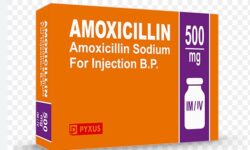Benefits of Quit Smoking
In today’s fast-paced world, it’s becoming increasingly important to prioritize our health and well-being. One crucial aspect of maintaining a healthy lifestyle is taking care of our respiratory system. From improved lung function to reduced risk of cancer, the benefits of lung health go far beyond simply being able to breathe better. Not only does it enhance cardiovascular health, but it also leads to an improved overall quality of life. In this blog post, we will explore the various ways in which prioritizing lung health can positively impact our lives and wellbeing.
Improved Lung Function
Quitting smoking is an essential step towards improving lung function. The harmful substances present in cigarettes, such as nicotine and tar, damage the delicate tissues of the lungs and hinder their ability to function effectively. When individuals quit smoking, the lungs begin to heal and repair themselves. Over time, the harmful effects of smoking can be reversed, leading to improved lung function.
One of the primary benefits of quitting smoking is the reduction in the risk of developing lung cancer. Smoking is the leading cause of lung cancer, responsible for approximately 85% of cases. The toxic chemicals present in tobacco smoke damage the DNA in lung cells, leading to the development of cancerous cells. By quitting smoking, individuals significantly decrease their chances of developing lung cancer and other related respiratory diseases.
Furthermore, quitting smoking has a profound positive impact on cardiovascular health. Smoking contributes to the development of heart disease by causing plaque buildup in the arteries, narrowing the blood vessels, and reducing blood flow to the heart. The chemicals in tobacco smoke also cause blood clots, which can block arteries and lead to heart attacks and strokes. By quitting tobacco, individuals can significantly improve their cardiovascular health and reduce the risk of heart disease.
Benefits of Quitting Smoking
| Reduced Risk of Cancer | Enhanced Cardiovascular Health | |
|---|---|---|
| Restoration of damaged lung tissues | Decreased chances of developing lung cancer | Improved blood flow to the heart |
| Enhanced oxygen uptake | Lower risk of other respiratory diseases | Reduced plaque buildup in arteries |
| Reduced coughing and wheezing | Improvement in overall lung health | Lower incidence of heart attacks and strokes |
Quitting smoking leads to an improved overall quality of life. Smoking affects nearly every aspect of life, including physical health, mental well-being, and social interactions. As individuals quit smoking, they experience a range of benefits such as increased energy levels, improved sense of taste and smell, better respiratory function, and enhanced overall physical fitness.
Reduced Risk Of Cancer
The decision to quit smoking is one that can have a profound impact on your health, and one of the most significant benefits is the reduced risk of cancer. Smoking is a leading cause of various types of cancer, including lung, throat, esophageal, bladder, and colorectal cancer. When you inhale cigarette smoke, it introduces thousands of harmful chemicals into your body, many of which are carcinogenic. These chemicals can damage the DNA in your cells, leading to the uncontrolled growth and division of abnormal cells, which is the underlying process of cancer development.
By quitting smoking, you can significantly lower your risk of developing cancer. Research has shown that the risk decreases over time as your body begins to repair the damage caused by smoking. In fact, within just a few years of quitting, your risk of developing lung cancer can be reduced by up to 50%. This decrease in risk is not only limited to lung cancer but also applies to other smoking-related cancers as well. It’s a testament to the amazing ability of the human body to heal and recover when given the chance.
In addition to reducing the risk of cancer, quitting smoking also offers numerous other health benefits. For example, quitting smoking improves lung function, allowing you to breathe easier and reducing the risk of respiratory infections. It also enhances cardiovascular health by improving circulation and reducing the risk of heart disease and stroke. Quitting smoking can lead to significant improvements in your overall quality of life, as it eliminates the persistent cough, shortness of breath, and other respiratory symptoms associated with smoking.
| Benefits of Quitting Smoking: |
|---|
| Reduced Risk of Cancer |
| Improved Lung Function |
| Enhanced Cardiovascular Health |
| Improved Overall Quality of Life |
By quitting smoking, you are taking a crucial step towards safeguarding your health and reducing the risk of cancer and other smoking-related diseases. It’s never too late to quit, and the benefits are numerous and far-reaching. If you or someone you know is struggling with quitting smoking, don’t hesitate to seek support from healthcare professionals, support groups, or quit-smoking programs. Remember, quitting smoking is a journey, and each day without cigarettes is a victory for your health.
Enhanced Cardiovascular Health
When it comes to quitting smoking, one of the key benefits is the improvement it brings to cardiovascular health. Smoking is a leading cause of heart diseases, including heart attacks and strokes. The chemicals present in cigarettes can damage the lining of the blood vessels, leading to atherosclerosis, a condition characterized by the buildup of plaque. By quitting smoking, individuals can lower their risk of developing heart diseases and experience enhanced cardiovascular health.
One of the ways quitting smoking contributes to improved cardiovascular health is by reducing the levels of harmful chemicals in the body. Cigarette smoke contains high levels of carbon monoxide, which can bind to hemoglobin in the blood and decrease its oxygen-carrying capacity. This puts a strain on the heart as it needs to pump harder to deliver oxygen to various tissues. By quitting smoking, carbon monoxide levels decrease, allowing the heart to work more efficiently.
In addition to reducing harmful chemicals, quitting smoking also helps reduce inflammation and improve blood vessel function. Smoking promotes inflammation in the body, which can damage the inner lining of blood vessels and trigger the formation of blood clots. These blood clots can block blood flow to vital organs, increasing the risk of heart attack or stroke. By quitting smoking, inflammation decreases, and blood vessel function improves, leading to better overall cardiovascular health.
- Quitting smoking lowers the risk of heart diseases and improves cardiovascular health.
- Carbon monoxide levels decrease, allowing the heart to work more efficiently.
- Quitting smoking reduces inflammation and improves blood vessel function.
| Benefit | Description |
|---|---|
| Reduced Risk of Heart Diseases | By quitting smoking, individuals lower their risk of developing heart diseases such as heart attacks and strokes. |
| Improved Oxygen Delivery | Quitting smoking decreases carbon monoxide levels, enabling the heart to pump oxygen-rich blood more effectively. |
| Enhanced Blood Vessel Function | Quitting smoking reduces inflammation and improves blood vessel function, promoting better blood flow. |
Improved Overall Quality Of Life
The decision to quit smoking can have a profound impact on one’s overall quality of life. Quitting smoking not only leads to significant health benefits, but it also improves various aspects of daily living. One of the primary benefits of quitting smoking is an improvement in lung function. The lungs are vital organs responsible for oxygenating the blood and removing carbon dioxide. When someone quits smoking, their lung capacity increases, allowing for better oxygenation and improved overall respiratory function.
In addition to improved lung function, quitting smoking also reduces the risk of developing various types of cancer. Smoking is a leading cause of lung cancer, as well as other types of cancers such as mouth, throat, esophagus, and bladder cancer. By quitting smoking, individuals significantly decrease their chances of developing these life-threatening diseases. Studies have shown that the risk of developing lung cancer starts to decrease immediately after quitting and continues to decline over time.
Furthermore, quitting smoking enhances cardiovascular health. Smoking damages the heart and blood vessels, leading to an increased risk of heart disease, stroke, and other cardiovascular conditions. However, when an individual quits smoking, their blood pressure and heart rate start to normalize, reducing the strain on the cardiovascular system. Over time, the risk of heart disease and stroke decreases, ultimately improving overall cardiovascular health and longevity.
Frequently Asked Questions
Question 1: How does smoking affect lung function?
Smoking can greatly impair lung function by causing inflammation and damage to the airways and tissues in the lungs. This can lead to conditions such as chronic bronchitis and emphysema, which can make it difficult to breathe and reduce lung capacity.
Question 2: What is the link between smoking and cancer risk?
Smoking is a major risk factor for various types of cancer, including lung, throat, mouth, esophageal, and bladder cancer. The harmful chemicals in tobacco smoke can cause genetic mutations and cell damage, increasing the likelihood of cancer development.
Question 3: How does smoking affect cardiovascular health?
Smoking damages the cardiovascular system by narrowing blood vessels, increasing blood pressure, and promoting the formation of blood clots. These effects raise the risk of heart disease, stroke, and other cardiovascular conditions.
Question 4: How can quitting smoking improve overall quality of life?
Quitting smoking can bring numerous benefits to overall quality of life. It can improve respiratory function, increase energy levels, enhance physical fitness, and reduce the risk of developing smoking-related diseases. It can also improve mental well-being and enhance the sense of taste and smell.
Question 5: Can lung function be improved after quitting smoking?
Yes, quitting smoking allows the lungs to start healing. Over time, lung function can improve as the inflammation and damage caused by smoking subside. Regular exercise, a healthy diet, and avoiding exposure to secondhand smoke can also support the recovery of lung function.
Question 6: Does quitting smoking completely eliminate the risk of cancer?
While quitting smoking greatly reduces the risk of developing cancer, it does not completely eliminate it. The risk gradually decreases over time after quitting, but it may still remain higher than in individuals who have never smoked.
Question 7: What are some strategies for successfully quitting smoking?
Some strategies for successful smoking cessation include setting a quit date, seeking support from family and friends, finding alternative coping mechanisms for stress or emotions, utilizing nicotine replacement therapies or medications, and joining support groups or counseling programs. It’s important to personalize the approach and seek professional guidance if needed.



